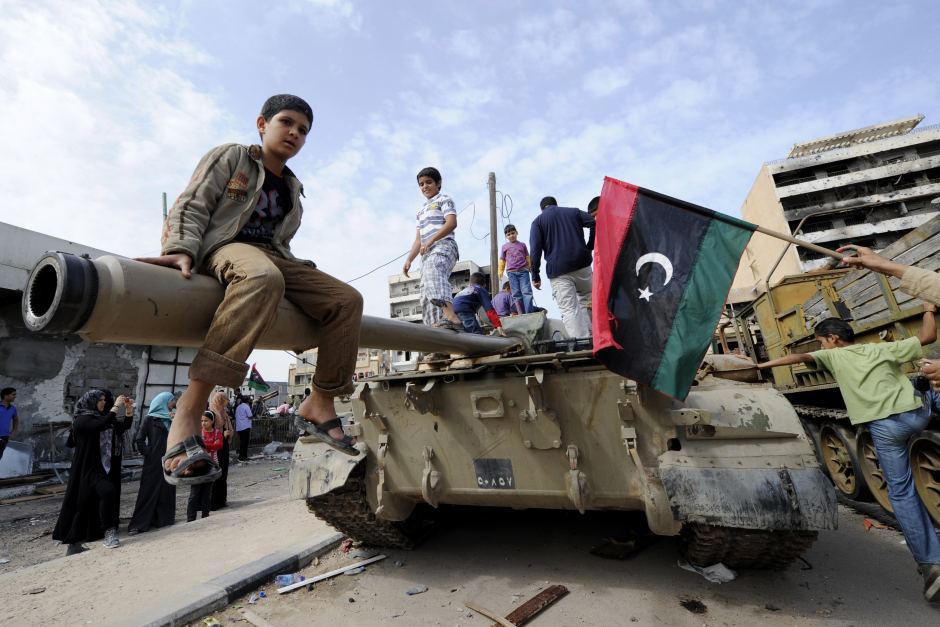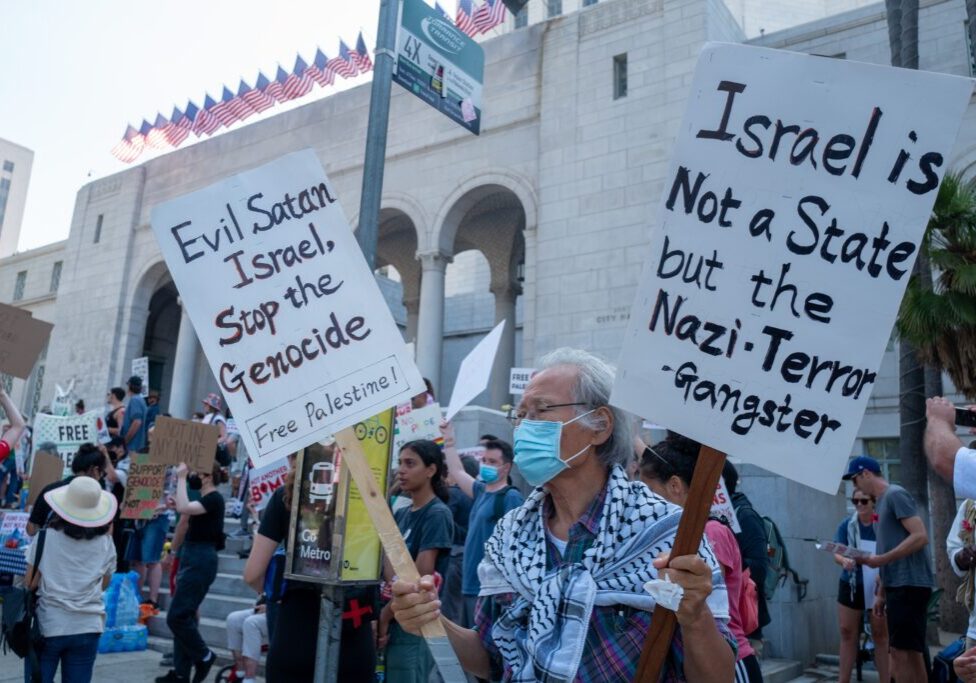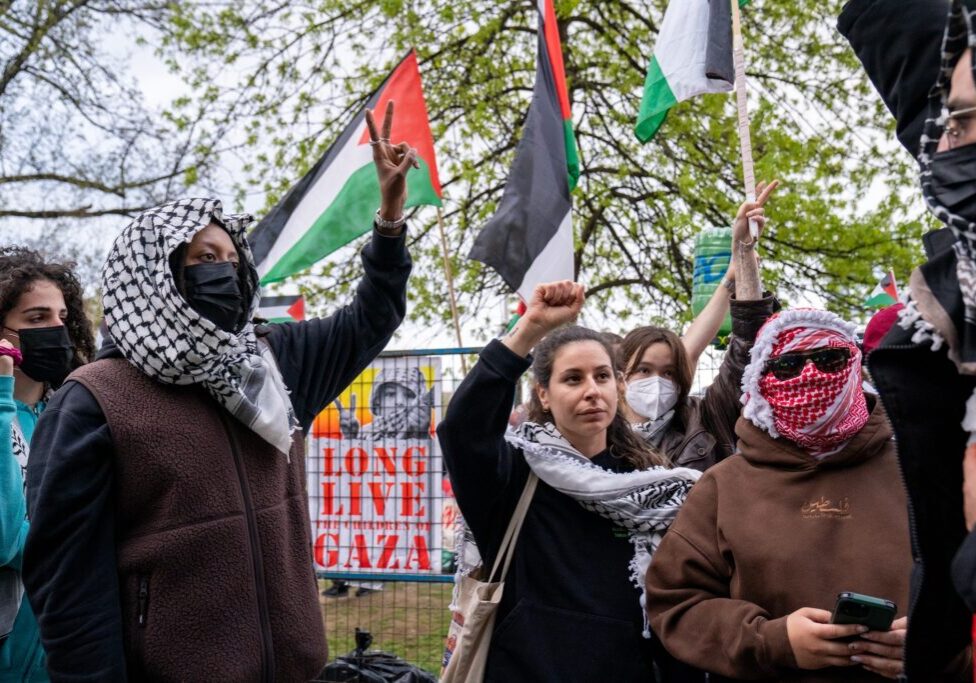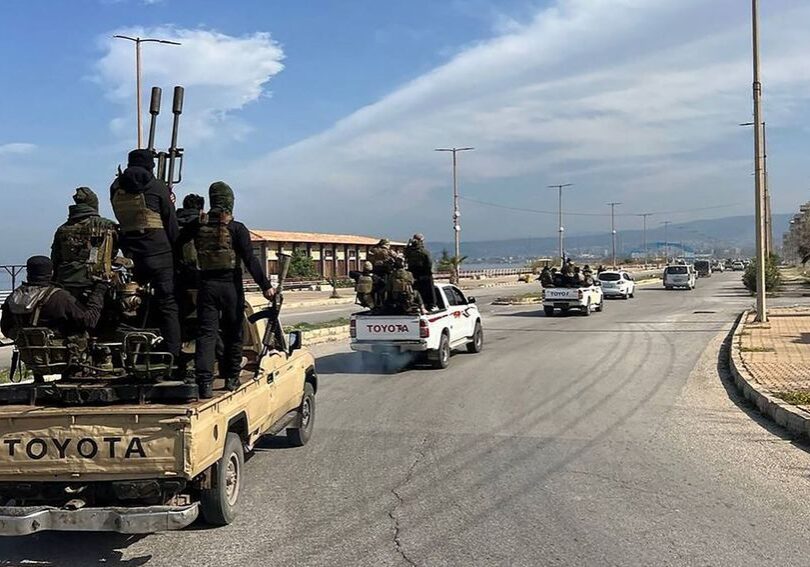Australia/Israel Review
Will Libya be a Radical Islamist State?
Oct 31, 2011 | Barry Rubin

Barry Rubin
Will US President Barack Obama soon be wearing a T-shirt saying:” I SPENT $3 BILLION OF YOUR TAX MONEY IN LIBYA AND ALL I GOT WAS A LOUSY ISLAMIST REGIME!”?
The answer isn’t clear yet, though there are worrisome portents. The main evidence of the moment is the “liberation” speech given by US-backed transitional leader Mustafa Abdul-Jalil on October 23, marking the official victory declaration of the NATO-backed rebels. The Associated Press – notoriously cautious about saying the “I” word – characterised the speech as setting out, “A vision for the post-Gaddafi future with an Islamist tint.”
The main theme was one of tolerance among Libyans, a noble sentiment unlikely to work in a country where factional, tribal, regional, and ideological divides run deep.
What clues are in the speech? These are the main ones:
• Sharia law will be the “basic source” of law for Libya. This is not quite the Islamist stance that Sharia is the “only source” but beyond an acceptably pious assertion of it being the “main source.”
In apologising for this statement, a lot of the poorly informed (to be kind) Western media is getting it wrong. For example, the UK Daily Telegraph reported that the Libyan formula is fine because it is the same one prevailing under the Mubarak regime in Egypt.
But even if that’s technically true, it is very misleading. For one thing, the Libyan leader said explicitly that no law can contradict Sharia. But Egypt did have laws that contradicted Islamic law as it is interpreted by the Islamists. To cite only one example, there were reforms over women’s rights that did not coincide with Sharia.
There’s more proof. If no law contradicting Islam is permitted then Sharia is NOT just the main source of legislation but the only source of legislation. And that’s the Islamist position.
• All laws that contradict Islam’s teachings will be removed. In other words, Libya will be fully Sharia compliant.
• Only “Islamic banking” would be permitted, meaning no interest but various schemes to circumvent such practices.
• Polygamy, largely banned under Gaddafi, will be reintroduced.
Does this mean no alcohol, dress codes for women, restrictions on entertainment and freedom of speech, the introduction of amputations and beheadings, death to anyone converting from Islam to Christianity, and so on?
That isn’t clear yet but it is a step in that direction. In a few months we will have the answer to this question.
• Instead of firing guns in the air, Libyans should chant “Allahu Akbar.” This certainly is a less risky way to say, “Hooray!” But there is also an interesting underlying implication. Islamic behaviour should replace tribal behaviour. A wider point here is that the next regime is likely to try to use Islam to unite the country, overcoming tribal and regional differences. We’re all Muslims, it will argue, so why should we quarrel with each other?
What might be most disturbing, though not the least bit surprising, however, is something else he said:
“This revolution was looked after by God to achieve victory.”
Now that makes total sense. Western societies also thank the Supreme Being for victories. But what about NATO and the United States who, let’s face it, were the real authors of victory?
There were US and European flags displayed by way of thanks but apparently he only mentioned the Gulf states, Arab League, UN, and European Union.
Why not the military forces that brought him victory and the United States? Why didn’t he thank them? Because to do so would seem to undercut his own legitimacy. He would then be the instrument of the West, rather than of Allah.
The view within Libya is that the all-powerful deity caused the infidels to act and thus they deserve no credit, thanks, or reciprocal gesture.
In fact, what the transitional leader said has a hidden meaning: “This revolution was blessed by God to achieve victory. And we must go on the right path.”
The phrase “right path” is a pun on Sharia (“the right path”) law.
The good news is that the new Libya, no matter how much in conflict or repressive at home, is unlikely to flex its muscles in the region. To make Libya a regional power was Gaddafi’s ambition. Even if Libya were to be dominated by Islamists, it would not be another Iran. Yet an Islamist Libya would be another source of encouragement for revolutionary Islamists elsewhere. Even though these Islamists don’t all get along well together, they already basically have the Gaza Strip, Iran, Sudan and Turkey. They may very soon be the leading forces in Egypt and Tunisia.
So the best-case analysis is of a highly Islamic but inward-looking Libya that doesn’t sponsor terrorism or subvert its neighbours, the kind of regime the Obama Administration is promoting, or something much worse: another link in a chain of radical Islamist regimes dominating the Middle East.
Dr. Barry Rubin is Director of the Global Research in International Affairs (GLORIA) Centre and Editor of the Middle East Review of International Affairs (MERIA) Journal. His latest books include The Long War for Freedom: The Arab Struggle for Democracy in the Middle East (Wiley), and The Truth About Syria (Palgrave-Macmillan). © GLORIA, reprinted by permission, all rights reserved. Dr. Rubin’s articles can be found at www.rubinreports.blogspot.com
Tags: Islamic Extremism






